- Home
- Henry James
The Portrait of a Lady — Volume 2
The Portrait of a Lady — Volume 2 Read online
Produced by Eve Sobol
THE PORTRAIT OF A LADY
VOLUME II (of II)
By Henry James
CHAPTER XXVIII
On the morrow, in the evening, Lord Warburton went again to see hisfriends at their hotel, and at this establishment he learned that theyhad gone to the opera. He drove to the opera with the idea of payingthem a visit in their box after the easy Italian fashion and whenhe had obtained his admittance--it was one of the secondarytheatres--looked about the large, bare, ill-lighted house. An acthad just terminated and he was at liberty to pursue his quest. Afterscanning two or three tiers of boxes he perceived in one of the largestof these receptacles a lady whom he easily recognised. Miss Archer wasseated facing the stage and partly screened by the curtain of the box;and beside her, leaning back in his chair, was Mr. Gilbert Osmond. Theyappeared to have the place to themselves, and Warburton supposed theircompanions had taken advantage of the recess to enjoy the relativecoolness of the lobby. He stood a while with his eyes on the interestingpair; he asked himself if he should go up and interrupt the harmony. Atlast he judged that Isabel had seen him, and this accident determinedhim. There should be no marked holding off. He took his way to the upperregions and on the staircase met Ralph Touchett slowly descending, hishat at the inclination of ennui and his hands where they usually were.
"I saw you below a moment since and was going down to you. I feel lonelyand want company," was Ralph's greeting.
"You've some that's very good which you've yet deserted."
"Do you mean my cousin? Oh, she has a visitor and doesn't want me. ThenMiss Stackpole and Bantling have gone out to a cafe to eat an ice--MissStackpole delights in an ice. I didn't think they wanted me either.The opera's very bad; the women look like laundresses and sing likepeacocks. I feel very low."
"You had better go home," Lord Warburton said without affectation.
"And leave my young lady in this sad place? Ah no, I must watch overher."
"She seems to have plenty of friends."
"Yes, that's why I must watch," said Ralph with the same largemock-melancholy.
"If she doesn't want you it's probable she doesn't want me."
"No, you're different. Go to the box and stay there while I walk about."
Lord Warburton went to the box, where Isabel's welcome was as to afriend so honourably old that he vaguely asked himself what queertemporal province she was annexing. He exchanged greetings with Mr.Osmond, to whom he had been introduced the day before and who, after hecame in, sat blandly apart and silent, as if repudiating competence inthe subjects of allusion now probable. It struck her second visitorthat Miss Archer had, in operatic conditions, a radiance, even aslight exaltation as she was, however, at all times a keenly-glancing,quickly-moving, completely animated young woman, he may have beenmistaken on this point. Her talk with him moreover pointed to presenceof mind; it expressed a kindness so ingenious and deliberate as toindicate that she was in undisturbed possession of her faculties. PoorLord Warburton had moments of bewilderment. She had discouraged him,formally, as much as a woman could; what business had she then withsuch arts and such felicities, above all with such tones ofreparation--preparation? Her voice had tricks of sweetness, but why playthem on HIM? The others came back; the bare, familiar, trivial operabegan again. The box was large, and there was room for him to remainif he would sit a little behind and in the dark. He did so for half anhour, while Mr. Osmond remained in front, leaning forward, his elbowson his knees, just behind Isabel. Lord Warburton heard nothing, and fromhis gloomy corner saw nothing but the clear profile of this younglady defined against the dim illumination of the house. When there wasanother interval no one moved. Mr. Osmond talked to Isabel, and LordWarburton kept his corner. He did so but for a short time, however;after which he got up and bade good-night to the ladies. Isabel saidnothing to detain him, but it didn't prevent his being puzzled again.Why should she mark so one of his values--quite the wrong one--when shewould have nothing to do with another, which was quite the right? He wasangry with himself for being puzzled, and then angry for being angry.Verdi's music did little to comfort him, and he left the theatre andwalked homeward, without knowing his way, through the tortuous, tragicstreets of Rome, where heavier sorrows than his had been carried underthe stars.
"What's the character of that gentleman?" Osmond asked of Isabel afterhe had retired.
"Irreproachable--don't you see it?"
"He owns about half England; that's his character," Henrietta remarked."That's what they call a free country!"
"Ah, he's a great proprietor? Happy man!" said Gilbert Osmond.
"Do you call that happiness--the ownership of wretched human beings?"cried Miss Stackpole. "He owns his tenants and has thousands of them.It's pleasant to own something, but inanimate objects are enough for me.I don't insist on flesh and blood and minds and consciences."
"It seems to me you own a human being or two," Mr. Bantling suggestedjocosely. "I wonder if Warburton orders his tenants about as you do me."
"Lord Warburton's a great radical," Isabel said. "He has very advancedopinions."
"He has very advanced stone walls. His park's enclosed by a giganticiron fence, some thirty miles round," Henrietta announced for theinformation of Mr. Osmond. "I should like him to converse with a few ofour Boston radicals."
"Don't they approve of iron fences?" asked Mr. Bantling.
"Only to shut up wicked conservatives. I always feel as if I weretalking to YOU over something with a neat top-finish of broken glass."
"Do you know him well, this unreformed reformer?" Osmond went on,questioning Isabel.
"Well enough for all the use I have for him."
"And how much of a use is that?"
"Well, I like to like him."
"'Liking to like'--why, it makes a passion!" said Osmond.
"No"--she considered--"keep that for liking to DISlike."
"Do you wish to provoke me then," Osmond laughed, "to a passion forHIM?"
She said nothing for a moment, but then met the light question with adisproportionate gravity. "No, Mr. Osmond; I don't think I should everdare to provoke you. Lord Warburton, at any rate," she more easilyadded, "is a very nice man."
"Of great ability?" her friend enquired.
"Of excellent ability, and as good as he looks."
"As good as he's good-looking do you mean? He's very good-looking. Howdetestably fortunate!--to be a great English magnate, to be clever andhandsome into the bargain, and, by way of finishing off, to enjoy yourhigh favour! That's a man I could envy."
Isabel considered him with interest. "You seem to me to be alwaysenvying some one. Yesterday it was the Pope; to-day it's poor LordWarburton."
"My envy's not dangerous; it wouldn't hurt a mouse. I don't want todestroy the people--I only want to BE them. You see it would destroyonly myself."
"You'd like to be the Pope?" said Isabel.
"I should love it--but I should have gone in for it earlier. Butwhy"--Osmond reverted--"do you speak of your friend as poor?"
"Women--when they are very, very good sometimes pity men after they'vehurt them; that's their great way of showing kindness," said Ralph,joining in the conversation for the first time and with a cynicism sotransparently ingenious as to be virtually innocent.
"Pray, have I hurt Lord Warburton?" Isabel asked, raising her eyebrowsas if the idea were perfectly fresh.
"It serves him right if you have," said Henrietta while the curtain rosefor the ballet.
Isabel saw no more of her attributive victim for the next twenty-fourhours, but on the second day after the visit to the opera sheencountered him in the gallery of the Capitol, where he stood befor
e thelion of the collection, the statue of the Dying Gladiator. She had comein with her companions, among whom, on this occasion again, GilbertOsmond had his place, and the party, having ascended the staircase,entered the first and finest of the rooms. Lord Warburton addressed heralertly enough, but said in a moment that he was leaving the gallery."And I'm leaving Rome," he added. "I must bid you goodbye." Isabel,inconsequently enough, was now sorry to hear it. This was perhapsbecause she had ceased to be afraid of his renewing his suit; she wasthinking of something else. She was on the point of naming her regret,but she checked herself and simply wished him a happy journey; whichmade him look at her rather unlightedly. "I'm afraid you'll think mevery 'volatile.' I told you the other day I wanted so much to stop."
"Oh no; you could easily change your mind."
"That's what I have done."
"Bon voyage then."
"You're in a great hurry to get rid of me," said his lordship quitedismally.
"Not in the least. But I hate partings."
"You don't care what I do," he went on pitifully.
Isabel looked at him a moment. "Ah," she said, "you're not keeping yourpromise!"
He coloured like a boy of fifteen. "If I'm not, then it's because Ican't; and that's why I'm going."
"Good-bye then."
"Good-bye." He lingered still, however. "When shall I see you again?"
Isabel hesitated, but soon, as if she had had a happy inspiration: "Someday after you're married."
"That will never be. It will be after you are."
"That will do as well," she smiled.
"Yes, quite as well. Good-bye."
They shook hands, and he left her alone in the glorious room, among theshining antique marbles. She sat down in the centre of the circle ofthese presences, regarding them vaguely, resting her eyes on theirbeautiful blank faces; listening, as it were, to their eternal silence.It is impossible, in Rome at least, to look long at a great company ofGreek sculptures without feeling the effect of their noble quietude;which, as with a high door closed for the ceremony, slowly drops onthe spirit the large white mantle of peace. I say in Rome especially,because the Roman air is an exquisite medium for such impressions. Thegolden sunshine mingles with them, the deep stillness of the past, sovivid yet, though it is nothing but a void full of names, seems to throwa solemn spell upon them. The blinds were partly closed in the windowsof the Capitol, and a clear, warm shadow rested on the figures and madethem more mildly human. Isabel sat there a long time, under the charmof their motionless grace, wondering to what, of their experience, theirabsent eyes were open, and how, to our ears, their alien lips wouldsound. The dark red walls of the room threw them into relief; thepolished marble floor reflected their beauty. She had seen them allbefore, but her enjoyment repeated itself, and it was all the greaterbecause she was glad again, for the time, to be alone. At last, however,her attention lapsed, drawn off by a deeper tide of life. An occasionaltourist came in, stopped and stared a moment at the Dying Gladiator, andthen passed out of the other door, creaking over the smooth pavement. Atthe end of half an hour Gilbert Osmond reappeared, apparently in advanceof his companions. He strolled toward her slowly, with his handsbehind him and his usual enquiring, yet not quite appealing smile. "I'msurprised to find you alone, I thought you had company.
"So I have--the best." And she glanced at the Antinous and the Faun.
"Do you call them better company than an English peer?"
"Ah, my English peer left me some time ago." She got up, speaking withintention a little dryly.
Mr. Osmond noted her dryness, which contributed for him to the interestof his question. "I'm afraid that what I heard the other evening istrue: you're rather cruel to that nobleman."
Isabel looked a moment at the vanquished Gladiator. "It's not true. I'mscrupulously kind."
"That's exactly what I mean!" Gilbert Osmond returned, and with suchhappy hilarity that his joke needs to be explained. We know that he wasfond of originals, of rarities, of the superior and the exquisite; andnow that he had seen Lord Warburton, whom he thought a very fine exampleof his race and order, he perceived a new attraction in the idea oftaking to himself a young lady who had qualified herself to figure inhis collection of choice objects by declining so noble a hand. GilbertOsmond had a high appreciation of this particular patriciate; not somuch for its distinction, which he thought easily surpassable, as forits solid actuality. He had never forgiven his star for not appointinghim to an English dukedom, and he could measure the unexpectedness ofsuch conduct as Isabel's. It would be proper that the woman he mightmarry should have done something of that sort.

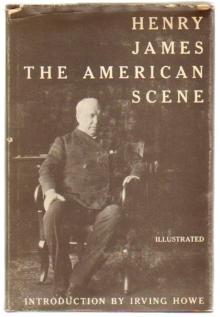 The American
The American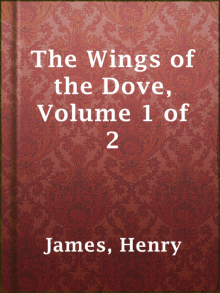 The Wings of the Dove, Volume 1 of 2
The Wings of the Dove, Volume 1 of 2 Frost at Midnight
Frost at Midnight Morning Frost
Morning Frost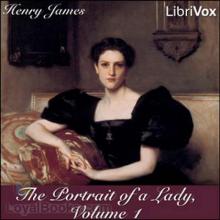 The Portrait of a Lady — Volume 1
The Portrait of a Lady — Volume 1 Fatal Frost
Fatal Frost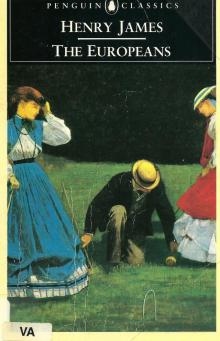 The Europeans
The Europeans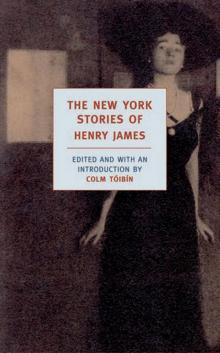 The New York Stories of Henry James
The New York Stories of Henry James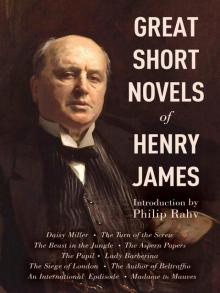 Great Short Novels of Henry James
Great Short Novels of Henry James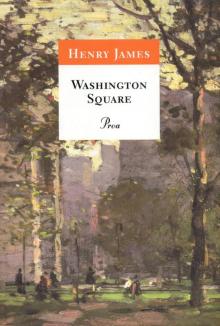 Washington Square
Washington Square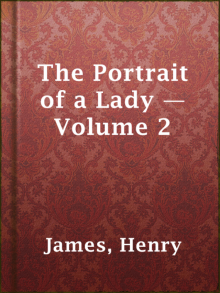 The Portrait of a Lady — Volume 2
The Portrait of a Lady — Volume 2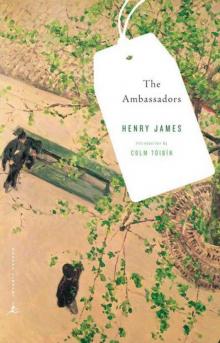 The Ambassadors
The Ambassadors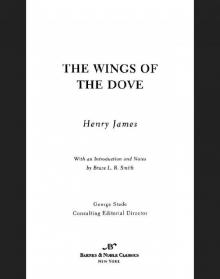 The Wings of the Dove
The Wings of the Dove The Princess Casamassima (Classics)
The Princess Casamassima (Classics) The Coxon Fund
The Coxon Fund First Frost
First Frost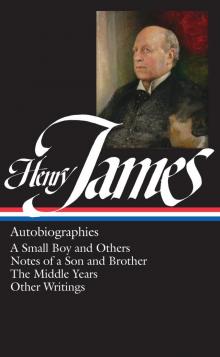 Henry James
Henry James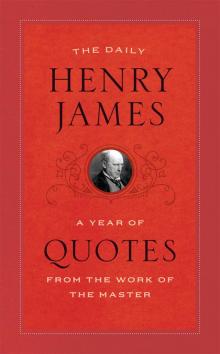 The Daily Henry James
The Daily Henry James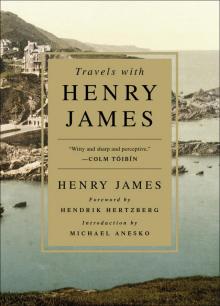 Travels With Henry James
Travels With Henry James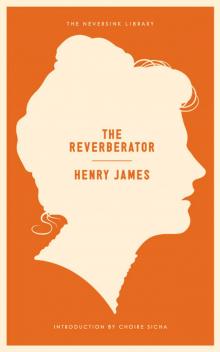 The Reverberator: A Novel
The Reverberator: A Novel What Maisie Knew (Henry James Collection)
What Maisie Knew (Henry James Collection)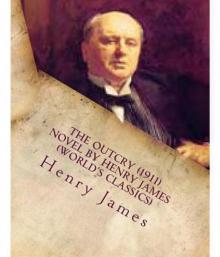 The Outcry
The Outcry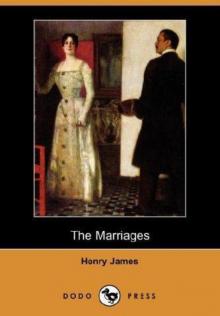 The Marriages
The Marriages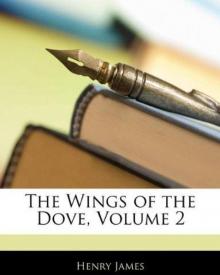 The Wings of the Dove, Volume 2
The Wings of the Dove, Volume 2 The Bostonians, Vol. I
The Bostonians, Vol. I The Outcry: -1911
The Outcry: -1911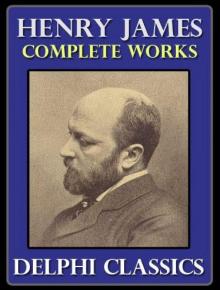 The Complete Works of Henry James
The Complete Works of Henry James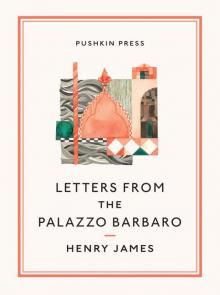 Letters from the Palazzo Barbaro
Letters from the Palazzo Barbaro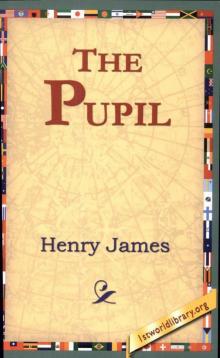 The Pupil
The Pupil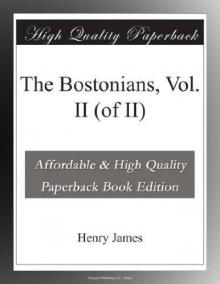 The Bostonians, Vol. II
The Bostonians, Vol. II Pandora
Pandora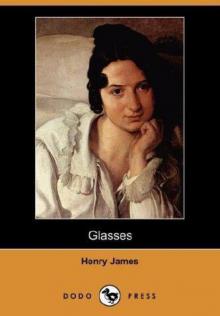 Glasses
Glasses The Princess Casamassima
The Princess Casamassima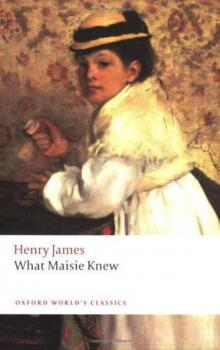 What Maisie Knew
What Maisie Knew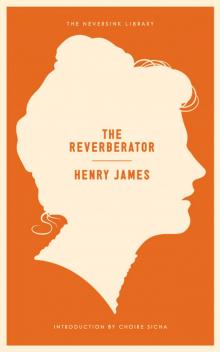 The Reverberator
The Reverberator The Golden Bowl - Complete
The Golden Bowl - Complete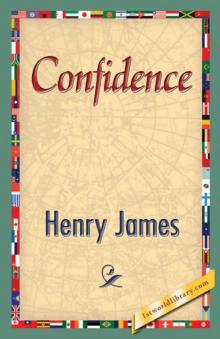 Confidence
Confidence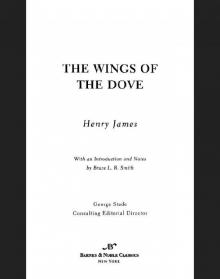 Wings of the Dove (Barnes & Noble Classics Series)
Wings of the Dove (Barnes & Noble Classics Series)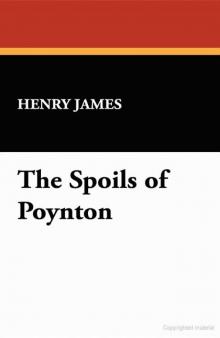 The Spoils of Poynton
The Spoils of Poynton